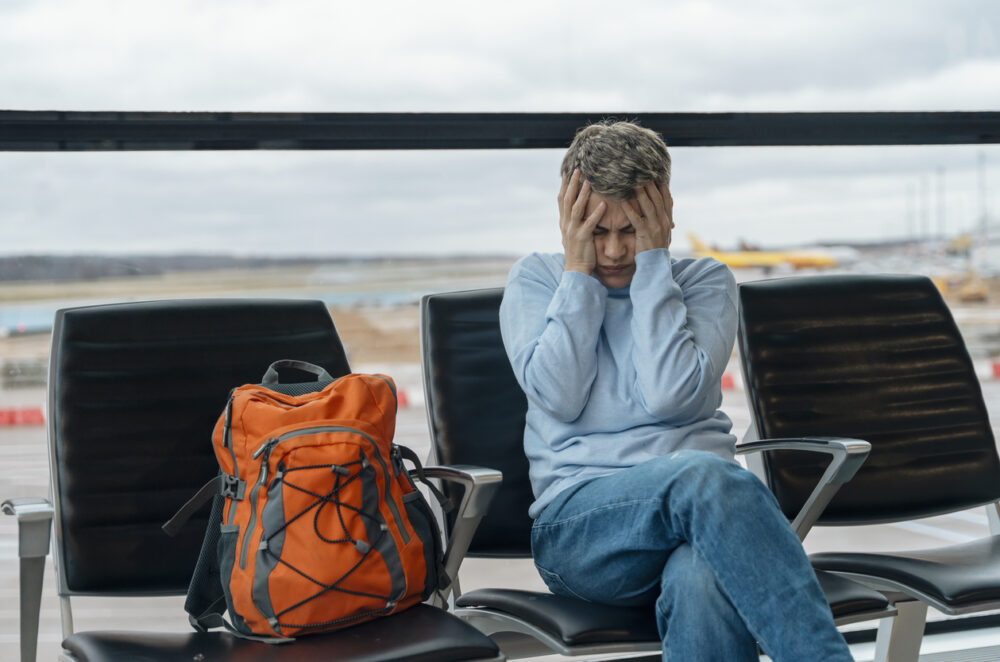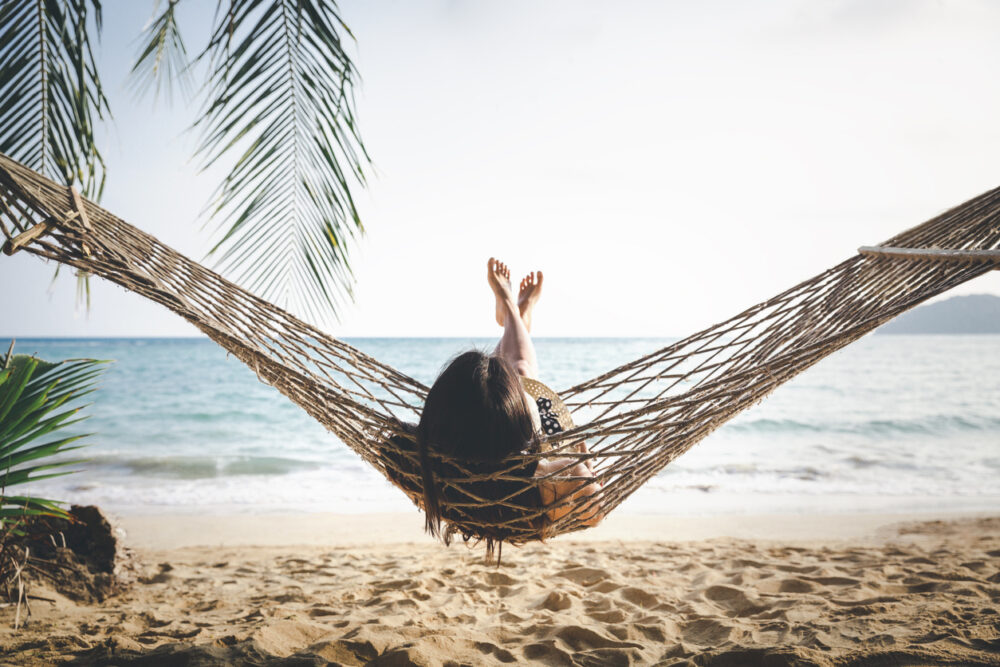That post-vacation letdown is not just in your head; it’s in your biology.

The feeling of returning to your normal routine after a great vacation can be a surprisingly miserable experience. This “post-vacation blues” or “travel withdrawal” is not a sign of being ungrateful; it is a real and scientifically measurable phenomenon. Vacations are not just a luxury; they are a fundamental part of our mental and physical maintenance, a way of resetting a brain that has been overworked and overstimulated.
Understanding the science behind why a vacation feels so good, and why coming home can feel so bad, is the key to appreciating why time off is a biological necessity.
1. Vacations reduce the stress hormone cortisol.

Our daily lives are often filled with a constant, low-grade stress that keeps our body’s primary stress hormone, cortisol, at an elevated level. Chronic high cortisol is linked to a host of health problems, from anxiety and weight gain to a weakened immune system. A vacation, by removing you from your primary sources of stress, like work and daily chores, gives your body a chance to reset its cortisol levels back to a healthy baseline, experts at WebMD shared.
This physiological change is a huge part of why you feel so relaxed and clear-headed on a trip. The “withdrawal” is the shock to your system as your cortisol levels begin to spike again upon returning to your stressful routine.
2. New environments boost dopamine and promote neuroplasticity.

Our brains are wired to be rewarded by novelty. When you are in a new and interesting environment, your brain releases a flood of dopamine, the neurotransmitter that is associated with pleasure and reward. This is a huge part of the “high” of traveling and exploring a new place. At the same time, navigating a new environment stimulates your brain to form new neural pathways, a process known as neuroplasticity.
A vacation is literally a workout for your brain, making it more flexible and creative, according to Psychiatric Times. The return to a highly predictable and routine environment can feel like a sudden and jarring loss of this mental stimulation.
3. Exposure to nature has a proven restorative effect.

Many vacations involve spending more time in nature, whether it’s a beach, a forest, or a mountain. A large body of scientific research has shown that spending time in natural environments has a powerful restorative effect on our minds, as stated by Adventures.com. According to “attention restoration theory,” nature allows our brain’s directed-attention capacities, which are drained by the constant focus of modern work, to rest and recover.
This is why a simple walk in the woods can leave you feeling so clear-headed and refreshed. A vacation that includes a healthy dose of nature is a powerful way to combat mental fatigue and to restore your ability to focus.
4. Time off allows your cognitive resources to recharge.

The constant demands of a modern job, with its endless emails, meetings, and deadlines, put a huge strain on the prefrontal cortex, the part of your brain that is responsible for high-level cognitive functions like focus, decision-making, and problem-solving. This mental fuel tank is a finite resource that gets depleted over the course of a work week. A vacation is a chance for this tank to be refilled.
By completely unplugging from work, you allow your brain’s executive functions to rest and to recover. This is why you often come back from a vacation with a renewed sense of focus and the ability to solve problems that seemed intractable before you left.
5. The anticipation of a trip is a major source of happiness.

The mental health benefits of a vacation begin long before you ever leave for your trip. A number of studies have shown that the simple act of anticipating a vacation is a significant source of happiness, often even more powerful than the trip itself. Having a trip on the calendar gives you something positive to look forward to and can make the daily grind feel much more manageable.
This is why it is a smart psychological “hack” to start planning your next, smaller trip shortly after you return from a big one. It ensures that you always have a positive future event to look forward to.
6. “Travel withdrawal” is your brain readjusting to a low-stimulation routine.

The “post-vacation blues” is the crash that comes after the high of travel. While you are on vacation, your brain is being constantly stimulated by new sights, sounds, and experiences, which, as we’ve seen, is a major source of dopamine. When you return home to your highly predictable and routine daily life, that high level of stimulation is suddenly gone.
This can feel like a profound sense of boredom and letdown, a feeling that your normal life is dull and uninteresting by comparison. Your brain is literally going through a withdrawal from the high level of novelty and reward it has just experienced. A good tip is to schedule something fun and new for your first week back.
7. Shared travel experiences strengthen your social bonds.

One of the most important and lasting benefits of a vacation is its ability to strengthen our social bonds. Traveling with a partner, your family, or your friends creates a unique and powerful set of shared memories and experiences. You are navigating challenges together, discovering new things together, and creating a story that is unique to your relationship.
This is a powerful way to build intimacy and connection, which is a fundamental human need and a cornerstone of long-term happiness and well-being. A vacation is not just an escape; it is an investment in your most important relationships.
